
views
Leading the Game

Introduce yourself and the specifics of the game. Before you start calling combinations, tell the audience your name and introduce the game. State how many games will be played and what they'll be playing for, such as four corners, a line, etc. You can give yourself a funny nickname instead of using your real name to liven things up, if desired. Make any rules very clear in the beginning so that people are less likely to get upset about technicalities. For example, after telling the group your name, you could say, "We're going to be playing 2 games. In the first one, your goal is to get 4 corners, and the second one will be for the whole board."
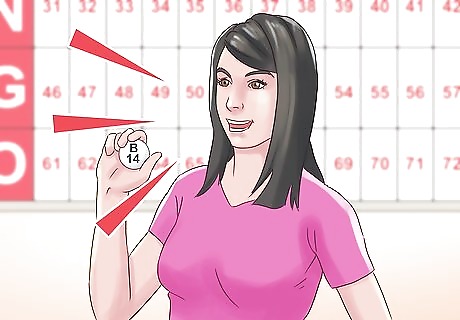
Yell out the letter before the number once you get the combination. You'll either pull a ball from the ball spinner, or you'll wait for the combination to appear on an electronic random number generator. State the letter first, followed by the number, such as “B5!” It's helpful to say a word that starts with the letter for letters that sound similar to other letters, such as B and G. For example, if the call is B10, you might say, “B10, B as in Bingo!”
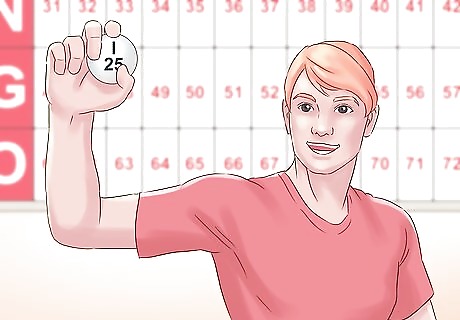
Repeat the letter and number combination several times. It's common for people to not hear a new combination the first time you say it, or they might mishear and think it's something else. To get rid of any confusion, repeat the letter and number 3 times, waiting a few seconds in between each reading.
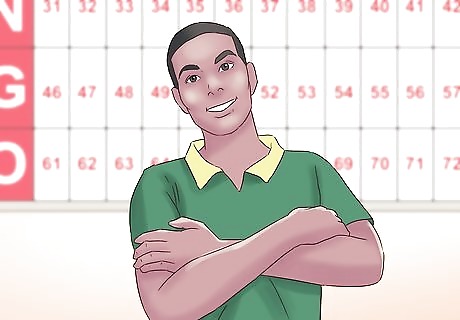
Allow 30 seconds between each call to give people enough marking time. People need time to hear the combination, find it on their score sheets, and then mark it. Don't call out a new combination too quickly—wait roughly 30 seconds after you've called out the letter and number for people to prepare for the next call. The 30 seconds refers to the entire time a new call is made—you don't need to wait 30 seconds each time you repeat the combination again for people that might not have heard.
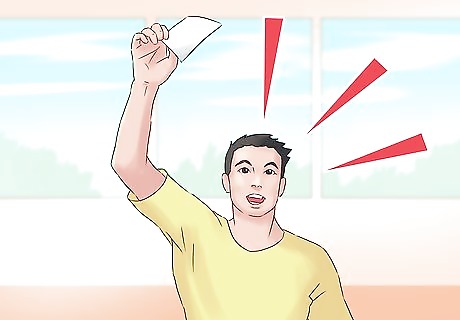
Keep calling out the combinations until someone yells bingo. Continue stating the letter and number combinations slowly and clearly. Pay attention to the crowd to see when someone raises their hand or yells, “Bingo!” signifying that they've won. If necessary, check their card to make sure that they have the right combinations marked and truly have bingo.
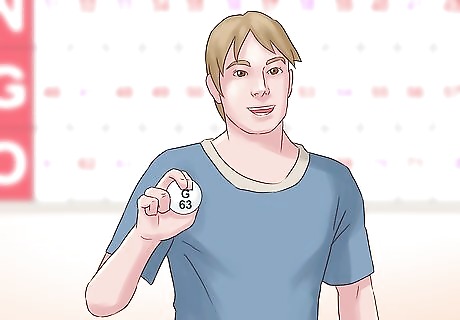
Learn nicknames for the numbers in case you decide to use them. Many bingo players are familiar with funny word associations or nicknames for the bingo numbers. Decide whether your audience would understand and enjoy these nicknames, and use them to make the game more fun and interesting if desired. For example, you might say, “B7, slice of heaven,” or refer to 13 as “Unlucky for some.” You can find a list of bingo nicknames on websites such as Wink Bingo.
Perfecting Your Calls
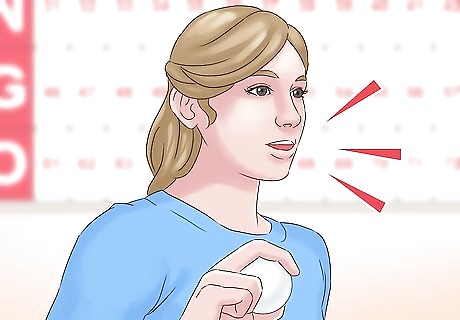
Go slowly to pronounce the calls clearly. It's common for people to talk faster when speaking in front of a lot of people. Don't rush through each combination—enunciate each letter and number clearly. By speaking more slowly, you'll better ensure that people understand what you're saying. You might consider practicing calling out letters and numbers in front of someone else beforehand so that they can tell you if you're speaking at the right speed.
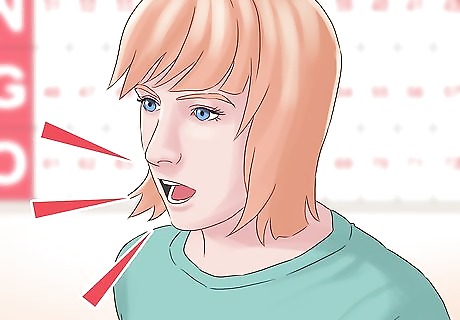
Speak with a loud voice if you don't have a microphone. If you're calling bingo in a busy bar or informal setting, you want everyone to be able to hear you. Speak louder than you normally would if the crowd is large or farther away, and ask people in the back if they can hear you before getting started. If you do have a microphone, you can speak at a normal volume as long as your mouth is close enough to the mic. Speaking loudly and clearly is especially important if your audience is full of seniors who could be hard of hearing. When everyone is getting set up, ask the group, "can everyone hear me clearly?" to know if you need to speak louder or softer.
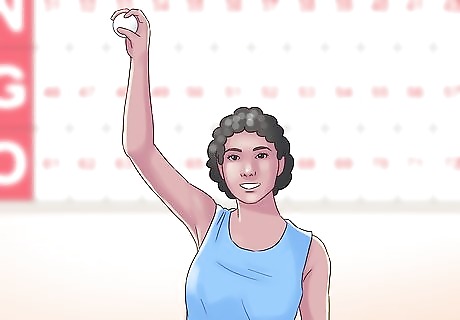
Be confident. If you go up to start calling and are super nervous and timid, the audience is going to question whether you're a good caller. Try to have fun and be relaxed—if you show confidence, the audience will be much more engaged and excited. For example, try speaking enthusiastically and clearly, asking the audience questions like, “Who's ready to win some bingo?” to get them enthusiastic about the game.

Keep a drink next to you in case you get thirsty. All of that talking is likely to make your throat dry. Bring a bottle of water with you so that you can take sips as needed, or ask if there are any drinks available at the bingo location. It's best to bring a drink with a lid or cap to avoid spillage.

Take your cues from the audience. If you're not sure whether you're calling the next combination too quickly or too slowly, look at the audience to see when they lift their heads up. If your audience looks super calm and relaxed, maybe consider using a more soothing voice than you would with a crowd who's full of energy. It's a good idea to look out at the players after every couple of calls to make sure everyone's engaged and having fun.











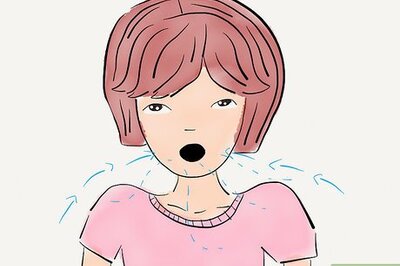
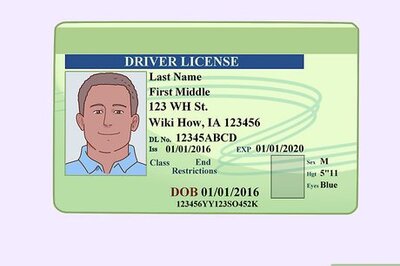


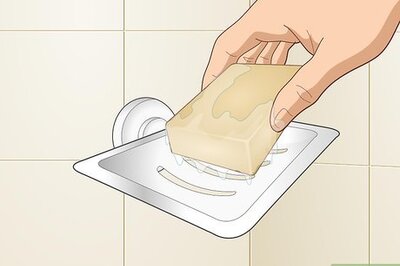


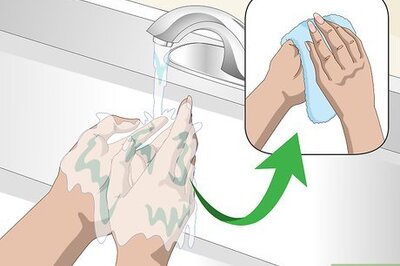
Comments
0 comment